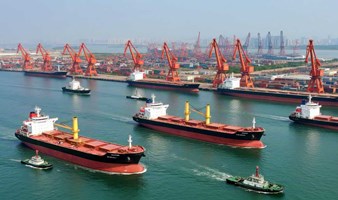

STRATEGIES FOR Mastering Multiple Languages
Hide
Event DetailsHide...
Mastering multiple languages:
Ladies and gentlemen, esteemed guests, and fellow language enthusiasts,
Today, we are gathered here to delve into a fascinating and highly relevant topic that resonates with our globalized world: "Mastering Multiple Languages." In an era where cultural exchange and international collaboration are more important than ever, the ability to speak multiple languages is not just a skill; it's a passport to a richer, more connected life.
Our presentation will explore innovative ways to study and master languages that break away from traditional methods and embrace the power of technology, neuroscience, and community learning. Here's a glimpse of what we'll cover:
Technology-Enhanced Language Learning:
Discover the latest apps and online platforms that utilize artificial intelligence to personalize language learning.
Learn about immersive virtual reality experiences that transport you to the heart of the language's culture.
Explore the use of language exchange platforms where you can practice with native speakers in a mutually beneficial setting.
Neuroscience-Backed Techniques:
Understand how memory palaces and spaced repetition can optimize your learning process based on how our brains function.
Dive into research on the critical periods for language acquisition and how to leverage them for adult learners.
Uncover the role of music and rhythm in language learning and how they can enhance pronunciation and fluency.
Community and Cultural Immersion:
Engage with stories of polyglots who attribute their success to engaging with language communities and cultures.
Learn about language cafes, meetups, and exchange programs that foster an environment of continuous learning and practice.
Discuss the benefits of travel and living abroad for language mastery and how to make the most of these experiences.
Interdisciplinary Approaches:
Examine how languages can be studied through the lens of other disciplines like history, art, and cuisine.
Understand the importance of learning the cultural context alongside the language itself.
Practical Tips and Strategies:
Get practical advice on how to maintain motivation and overcome common challenges in learning multiple languages.
Learn strategies for managing cognitive load and avoiding burnout when juggling multiple languages.
As we navigate through these topics, we will be joined by experts in language education, polyglots who have walked the path before us, and tech innovators who are shaping the future of language learning. They will share their insights, experiences, and practical tips to help you on your journey to mastering multiple languages.
So, whether you are a beginner looking to start your language learning adventure or an experienced polyglot seeking to refine your skills, this presentation is designed to inspire, inform, and equip you with the tools you need to succeed.
Let's embark on this exciting journey together and discover the world of possibilities that come with mastering multiple languages.
Made in Germany already reached its peak?
Ladies and gentlemen, esteemed guests, and fellow enthusiasts,
Today, we are gathered to delve into a topic of great significance, one that resonates with excellence, precision, and quality—the storied legacy of "Made in Germany." This phrase is more than just a label; it is a promise of world-class standards and a symbol of trust that has been built over a century.
**History of 'Made in Germany':**
Our journey begins in the late 19th century when the British, known for their superior manufacturing, imposed the "Made in Germany" label on German products as a sign of inferior quality. Fast forward to the early 20th century, and Germany had transformed this label into a mark of distinction. Through innovation, rigorous quality control, and a focus on craftsmanship, Germany emerged as a global leader in manufacturing.
The post-World War II era saw Germany split and later reunified, with its manufacturing sector playing a pivotal role in the country's economic recovery and growth. The "Made in Germany" label became synonymous with high-quality products ranging from automobiles to machinery, chemicals, and electronics.
Current Issues and Challenges:
As we stand at the crossroads of the 21st century, "Made in Germany" faces new challenges. Globalization has intensified competition, with emerging economies offering goods at lower prices. Additionally, there is a growing emphasis on sustainability and environmental impact, pushing German manufacturers to innovate and adapt their production processes.
The digital transformation is another frontier where "Made in Germany" must evolve. The Fourth Industrial Revolution, or Industry 4.0, presents opportunities for German manufacturers to integrate smart technologies, automation, and data exchange in their production lines.
Has 'Made in Germany' Reached Its Peak?
This brings us to the crux of our discussion today: Has "Made in Germany" reached its peak? Are the challenges of the modern era insurmountable for a label that has withstood the test of time? Or does the future hold new heights for German manufacturing as it continues to lead in innovation, quality, and sustainability?
We will explore these questions and more as we examine the current state of German manufacturing, the impact of global economic shifts, and the role of technology in shaping the future of "Made in Germany." Join us as we engage with industry experts, historians, and economists to uncover the story behind the label and its prospects in the global market.
Thank you, and let the exploration begin.
Why more and more companies move to Vietnam?
Ladies and gentlemen, esteemed guests, and participants,
Today, we are gathered to delve into a fascinating and timely topic that resonates across the global economic landscape: "Why More and More Companies Move to Vietnam?" This session will explore the intricate dynamics between "Made in China" and "Made in Vietnam," shedding light on the opportunities and risks associated with this shift in the manufacturing paradigm.
Introduction to the Topic:
In recent years, there has been a noticeable trend of companies relocating their manufacturing bases from China to Vietnam. This move is driven by a complex interplay of factors, ranging from economic to political, and from cost considerations to strategic diversification. As we navigate through this discussion, we will address the following key points:
1. The "Made in China" Phenomenon:
- We'll start by understanding the historical context of "Made in China," which has been the world's manufacturing hub for decades. We'll explore the factors that contributed to China's dominance in global manufacturing.
2. The Rise of "Made in Vietnam":
- Next, we'll turn our attention to Vietnam, a country that has emerged as a formidable competitor in the manufacturing sector. We'll discuss the country's strategic location, cost advantages, and the quality of its workforce.
3. Opportunities in Vietnam:
- We'll identify the opportunities that Vietnam presents to companies looking to expand or relocate their operations. This includes lower labor costs, tax incentives, and the country's participation in free trade agreements that provide access to large markets.
4. Risks and Challenges:
- While the opportunities are compelling, they are not without risks. We'll examine the potential risks, such as supply chain disruptions, political instability, and the maturity of Vietnam's infrastructure compared to China.
5. Comparative Analysis:
- A critical part of our discussion will be a comparative analysis between China and Vietnam. We'll look at the strengths and weaknesses of each country as a manufacturing base, and how companies are making strategic decisions based on these factors.
6. Future Outlook:
- Finally, we'll ponder the future implications of this trend. Will Vietnam continue to grow as a manufacturing powerhouse, or will the dynamics shift again? We'll consider the long-term prospects for both countries and the global economy.
Conclusion:
This session aims to provide a comprehensive understanding of the factors driving companies to move to Vietnam, the opportunities they seek, and the risks they face. It's not just about the numbers; it's about understanding the broader economic and geopolitical implications of this shift. We will engage in a dynamic conversation, inviting insights from industry experts, economists, and those with firsthand experience in these markets.
So, let's embark on this insightful journey together and explore why more and more companies are making the move to Vietnam. Your participation and questions will be invaluable to this discussion. Thank you for joining us today.
Event Tags
Recently Participation
Perhaps you'd be interested in
Question
All Questions
OrganizersMore

Echo Space 俱乐部

在上海这座城市的钢筋丛林中,隐藏着⼀个通往未知社交宇宙的神秘⼊⼝,那便是 Echo Space 俱乐部。 这⾥是⽣活⽅式的创意实验室。我们如同好奇的星际探险家,不断尝试、⼤胆创新,把每⼀次社交互 动都化作⼀场奇妙的实验。⽆论是⼀场以世界美⻝为媒介的⽂化融合活动,还是借助AI搭建的交流 会,亦或是在古⽼艺术形式的创意社交派对,展⽰家乡的传统⽂化,古⽼的中医⽂化或者精彩的功夫 技艺,可能都会传播给整个 “宇宙”(俱乐部成员)。 我们不是传统意义上循规蹈矩的俱乐部,⽽是⽣活⽅式的⼤胆⾰新者。在这⾥,你可以摆脱束缚,像 超级英雄发现⾃⼰的超能⼒⼀般,挖掘出⾃⼰在社交与⽣活创造中的⽆限潜能。你将与志同道合的伙 伴们携⼿,共同绘制⼀幅关于未来⽣活与国际社交的绚丽蓝图,每⼀笔都充满惊喜与未知,每⼀次尝 试都是对传统社交和⽣活模式的勇敢挑战。 Echo Space 的主持⼈,他们来⾃20多个不同的国家,有着不同的背景和专业领域,但都怀着对知识分 享和交流的热爱,汇聚于此。⽆论是学术研究的前沿成果,商业实践的宝贵经验,⽂化艺术的独特魅 ⼒,还是个⼈成⻓的励志故事,都能在这⾥找到。






















